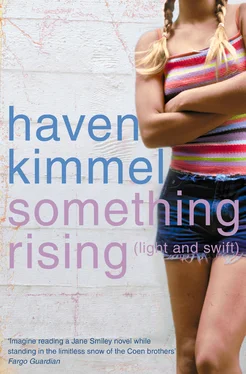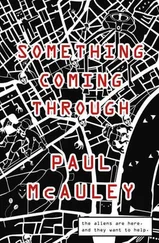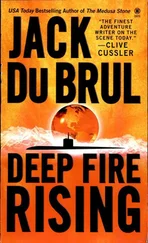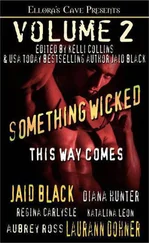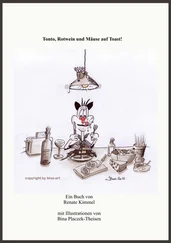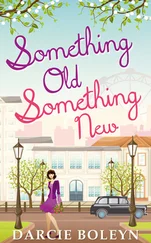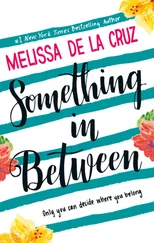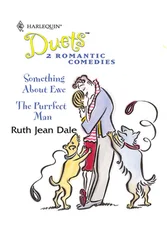Part One Table of Contents Cover Title Page Haven Kimmel Something Rising (Light and Swift) PROLOGUE Part One THE HAMMER IN HER HAND THE SPECTRUM OF POSSIBLE OUTCOMES,1979 THE FLOOD, 1985 Part Two A PRIVATE LANGUAGE SAMHAIN, 1987 ALL SAINTS Part Three RATTLESNAKE KITE C ATTAILS,1999 SHADOW FATHER ACKNOWLEDGMENTS About the Author Praise for Something Rising (Light and Swift) BY THE SAME AUTHOR Copyright About the Publisher
THE HAMMER IN HER HAND Table of Contents Cover Title Page Haven Kimmel Something Rising (Light and Swift) PROLOGUE Part One THE HAMMER IN HER HAND THE SPECTRUM OF POSSIBLE OUTCOMES,1979 THE FLOOD, 1985 Part Two A PRIVATE LANGUAGE SAMHAIN, 1987 ALL SAINTS Part Three RATTLESNAKE KITE C ATTAILS,1999 SHADOW FATHER ACKNOWLEDGMENTS About the Author Praise for Something Rising (Light and Swift) BY THE SAME AUTHOR Copyright About the Publisher
THE SPECTRUM OF POSSIBLE OUTCOMES, 1979 Table of Contents Cover Title Page Haven Kimmel Something Rising (Light and Swift) PROLOGUE Part One THE HAMMER IN HER HAND THE SPECTRUM OF POSSIBLE OUTCOMES,1979 THE FLOOD, 1985 Part Two A PRIVATE LANGUAGE SAMHAIN, 1987 ALL SAINTS Part Three RATTLESNAKE KITE C ATTAILS,1999 SHADOW FATHER ACKNOWLEDGMENTS About the Author Praise for Something Rising (Light and Swift) BY THE SAME AUTHOR Copyright About the Publisher
On Thursday, in the middle of June, she waited for her father. He hadn’t been home for two days, so she got up early, because sometimes he showed up very early and went straight to bed, and then the whole agony of having waited for him to come home was compounded by having to wait for him to get up. He could sleep fourteen hours at a time, hardly moving, she’d studied him. She got out of bed without making a sound, pulled on the clothes she’d worn the day before, didn’t bother with brushing her teeth or looking at her hair. There was little left of it anyway, after the episode with the ticks and Poppy’s clippers. She got up very early, before Laura or Belle, and crept down the stairs and into the kitchen tinged with morning light, the pale green kitchen that smelled—above and below food, laundry, visitors—of Laura’s cigarettes, and took out a bottle of chocolate milk that was made of neither chocolate nor milk. Her favorite drink. She took a banana, too, because bananas are by nature quiet foods, and snuck out through the living room, through the foyer with the two glass cases filled with her dead grandmother’s figurines (frolicking baby animals) and out onto the screened porch. The rocker closest to the front door was splintered, the one closer to the road groaned, and in neither did her feet reach the porch. She chose the one that groaned and hoped she wouldn’t move. Even this early the air was warm; later a breeze would come up, she guessed, but for now the trees were still. The view from where she sat dazed her with familiarity, the horseshoe-shaped gravel driveway with the holes no amount of dirt or gravel could fill, the yard on the other side of the drive. Nothing in it, just grass. And then her road, the King’s Crossing, bumpy asphalt with glass sewn in, in sunlight it shone like diamonds. Across the road a ditch that collected stray papers, detritus, once she’d found a child’s tennis shoe, just the one. Beyond the ditch was the fencerow that stretched the whole six hundred acres. To the left of her vision, in the field, was a stand of tall trees—a windbreak—and far to the right was another. Between the stands of trees the corn was pushing up in little shoots, it had been a dry spring, and barely visible to her were the power lines, four gigantic silver men in a row, standing with their hands on their hips, displeased. She knew that if she crossed the field, or rode her bike down to 300 West, also called the Price Dairy Road, and turned left, and got near the power lines, she would hear what Poppy called an infernal hum. The way power speaks. She had no interest in it.
The chocolate milk was gone, the banana was gone, its skin lay bereft next to her rocker. She had hardly moved. When the sun was almost up, the gray burned off, everything that had crouched in the shadow of dawn fully revealed, she knew he wouldn’t come, but still she waited. There was nothing else for it; other people pretended to go about their business, whatever business they fabricated, but really they were waiting, if not for him then for someone else. From its spot behind the house, she heard the door to Poppy’s Airstream open; the sound carried clearly across the early morning silence, she could almost hear him feel the weather, decide if he needed a hat. He didn’t. The dogs clambered down the metal stairs and into the backyard, then rounded the corner of the house, Poppy following.
“That you, Cass?” Poppy asked, shading his eyes and looking through the screen.
“It’s me.”
His three dogs, Marleybone, Juanita, and Roger, stood or scratched or rolled around Poppy’s legs, impatient for their constitutional. Marleybone was Poppy’s favorite, the leader of the pack. His fur was a crazy swirl of dark blue and white, he had one brown eye and one blue, his left ear was bent at the tip, and he stood on three legs. He kept his right rear leg lifted off the ground always, had the crazy look of a herder in his eyes. Juanita was a medium-size black dog who shook and mostly kept her tail tucked. There was a painful history on her face, and sometimes, sitting on the porch, looking at the clouds, she would start to shake. Roger had been Poppy’s latest acquisition, a wiry little blond dog with a big square head that resembled a cement block. There was mange in his past, but he’d managed to keep the tuft of yellow hair that shot up like a patch of weeds between his ears. Although he seemed to have no legs, so low did he hover over the ground, he could, without warning, leap four feet into the crook of his favorite tree in the backyard.
“You waiting for Jimmy?” Poppy asked. He slipped his right hand into his pants pocket, meaning he was embarrassed.
“Naw,” Cassie said, shaking her head.
‘“Cause you might find yourself sittin’ a long time, if you are.” Poppy dressed carefully every day in a flannel shirt and cotton trousers, suspenders. He carried a handkerchief in his breast pocket, shaved every morning, even when he was sick, and kept his white hair cut short. One of his real teeth, in the back, had a gold crown, he smelled like Ivory soap and cherry pipe tobacco. Since Cassie’s grandmother, Buena Vista, died two years ago and before Poppy had begun to collect dogs, he’d moved out to the 1967 Airstream at the back of the property. The world had disappointed him in every imaginable way, but he seemed a happy man. “Want to go with me? On my walk?”
Cassie shook her head.
“All right, then,” he said, and started off down the road.
She waited. It was a fine summer day. Inside the house her mother and sister began to stir. Cassie imagined them: Belle floating down the stairs in her white nightgown, Laura fighting her first cigarette of the day, making coffee. Time was and not so long ago that Belle would have been out here with her, but all had changed in the blink of an eye; it seemed so to Cassie. On her twelfth birthday in May, Belle had awakened full of dissatisfactions and resolutions, all of them spoken and written in her notebook then spoken again, and now it seemed that more than two years separated her from her sister. Something deeper than the river had carved itself out, Belle on one side. Cassie on the other.
“Don’t even tell me,” Belle said from behind the screen door.
Cassie tipped up her empty chocolate milk bottle, pretended to drink.
“Don’t even tell me you’re out here thinking Jimmy will come home.”
Читать дальше
